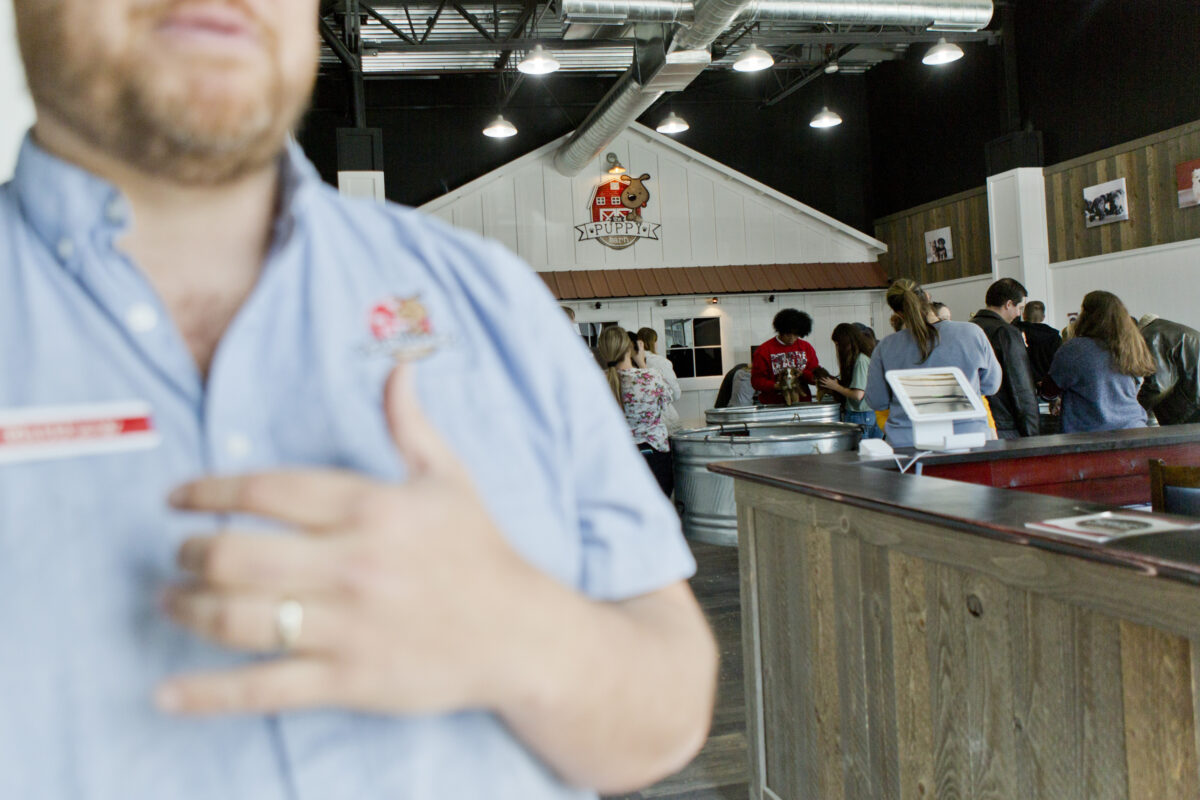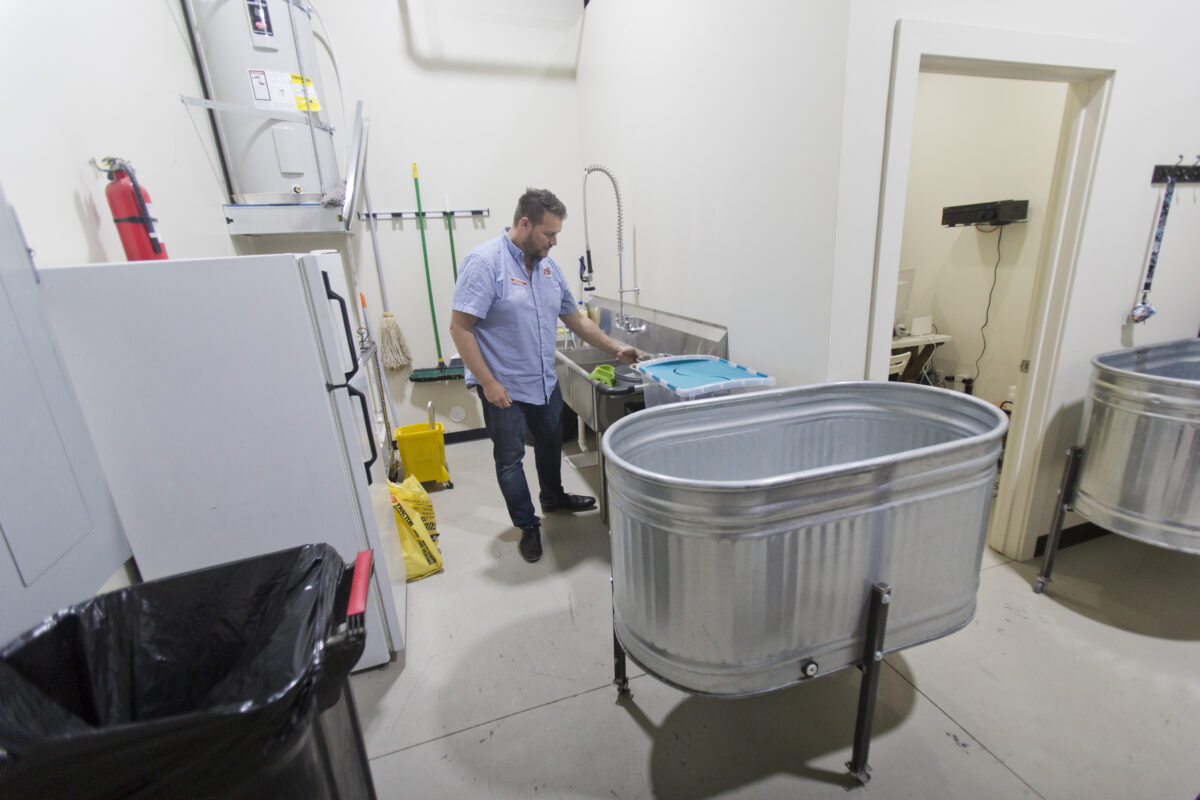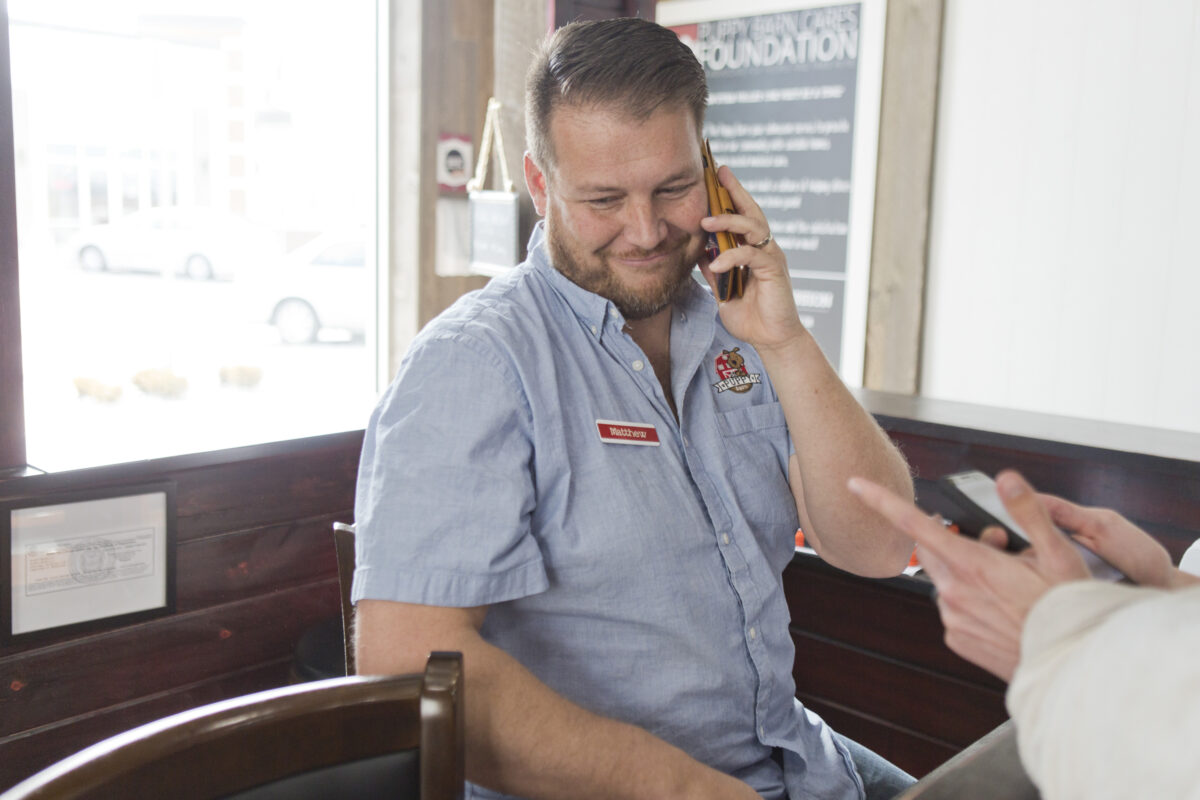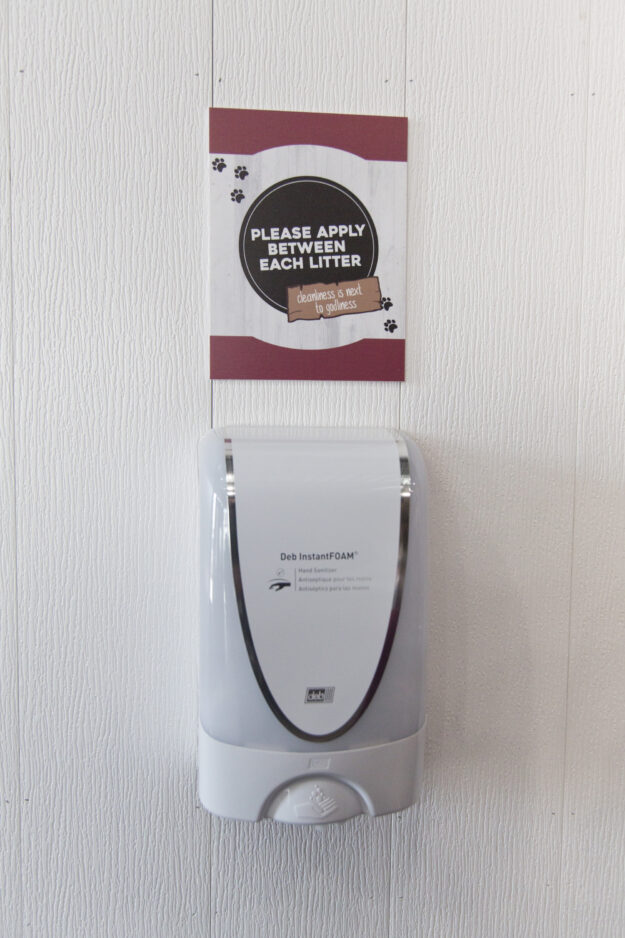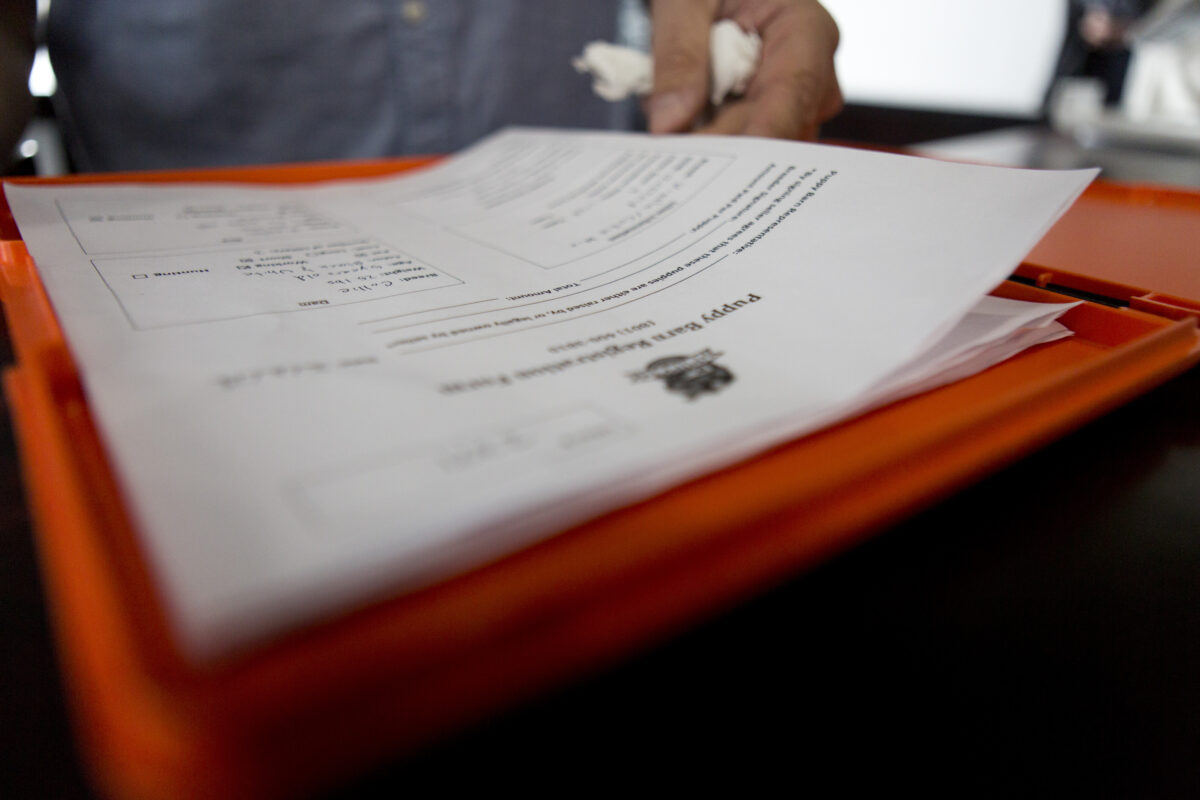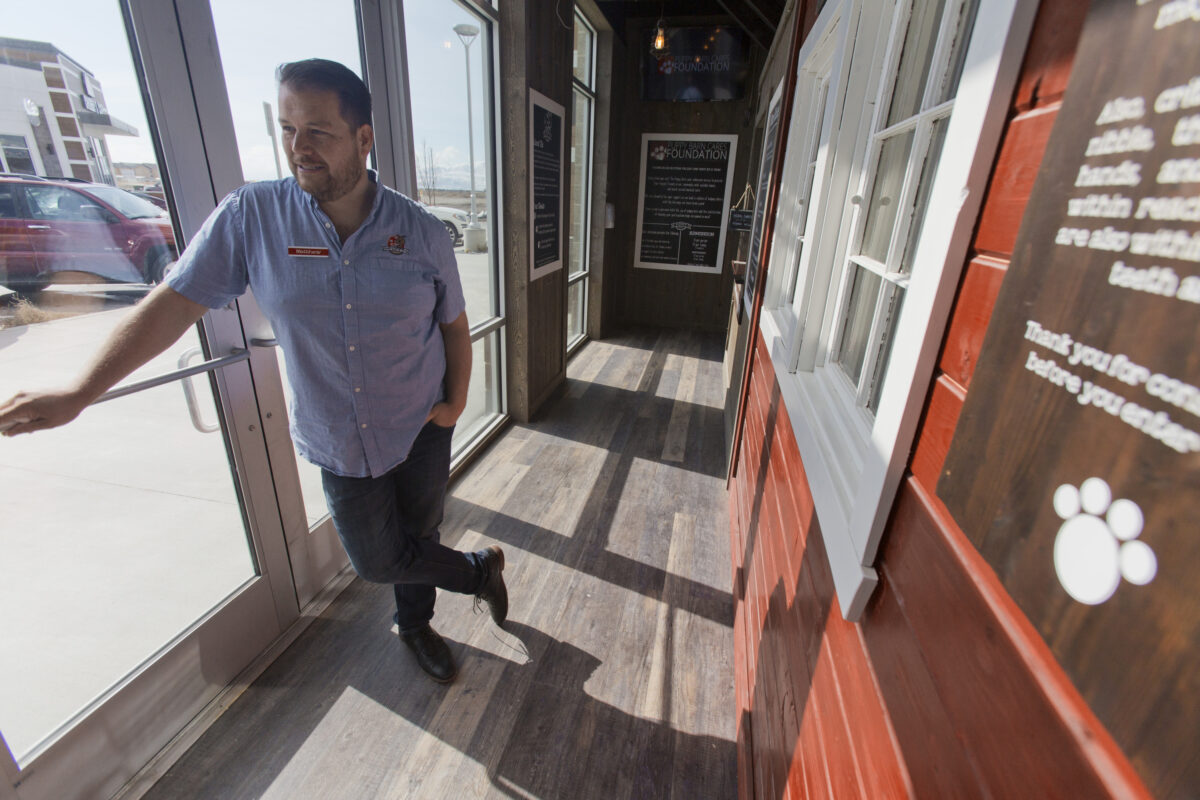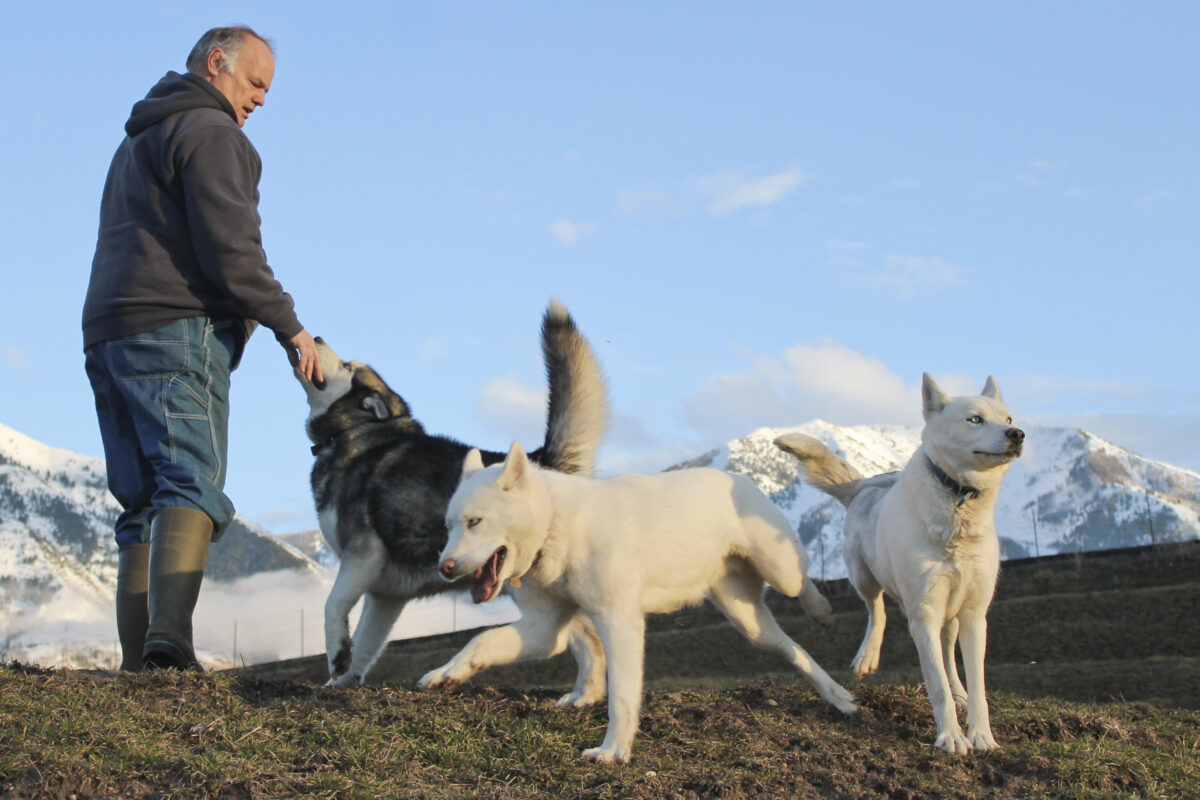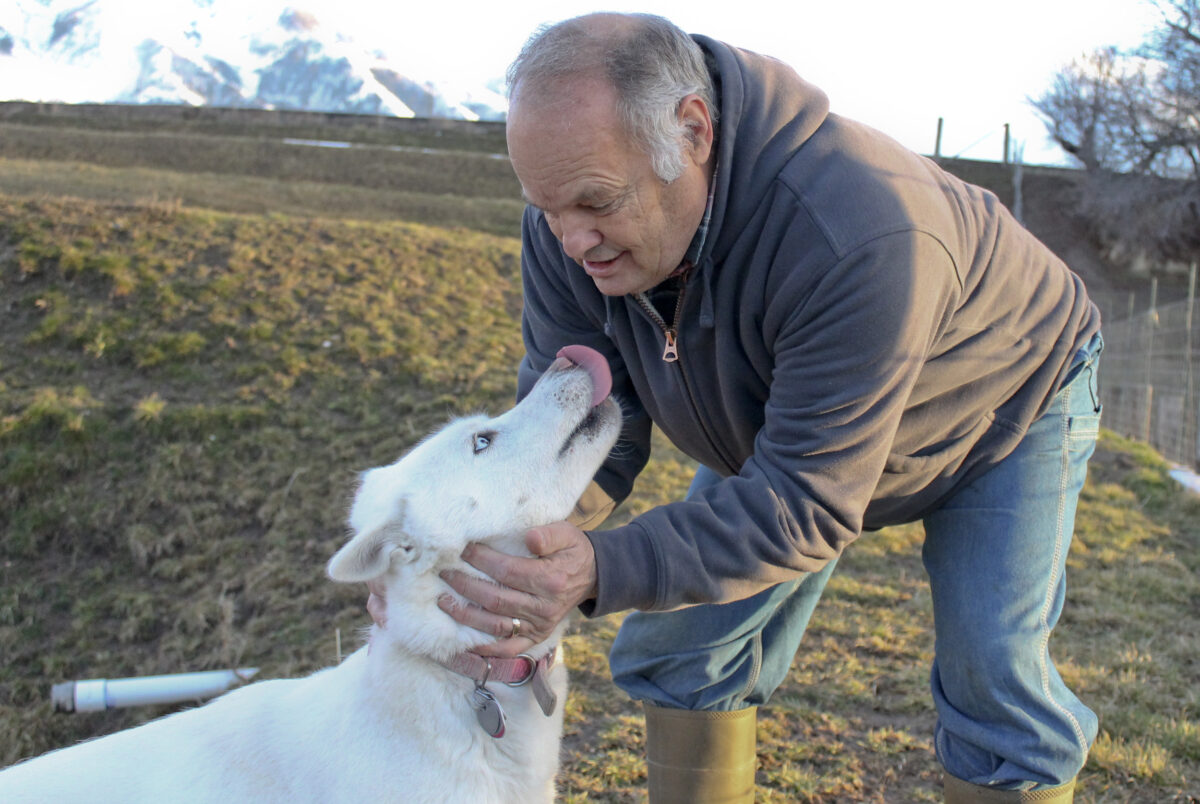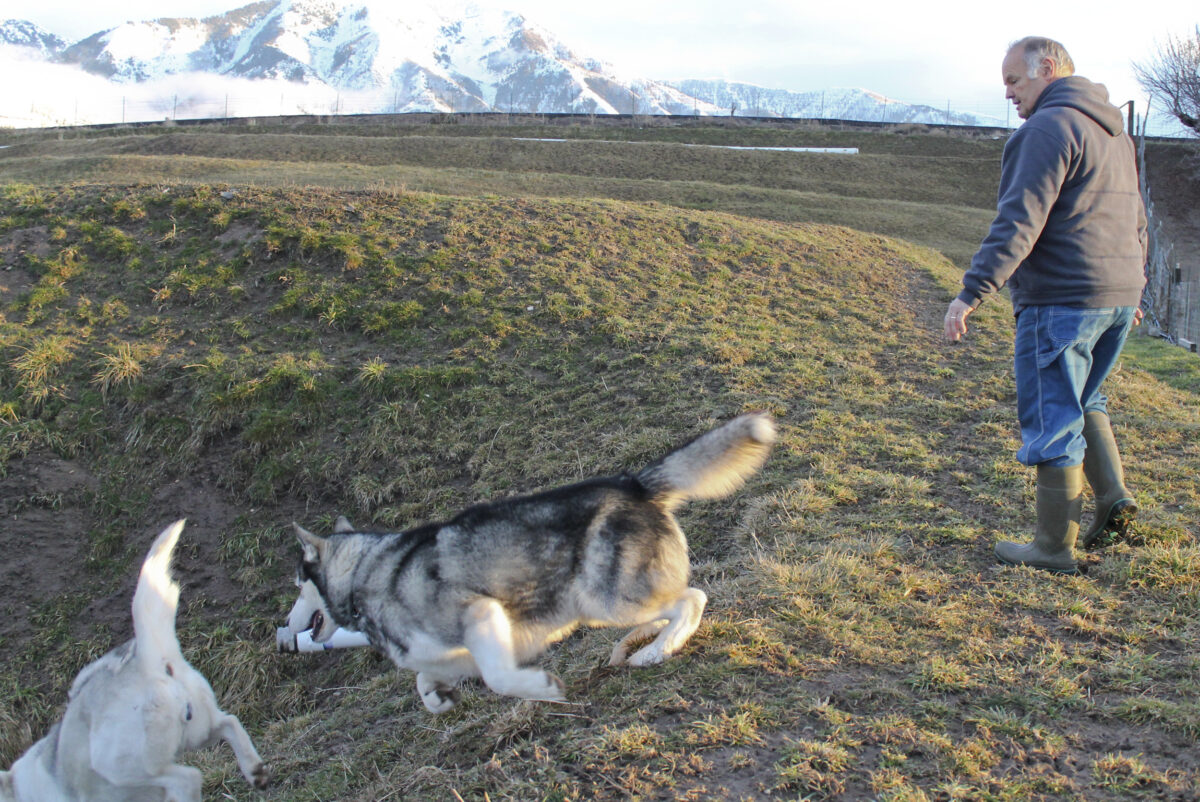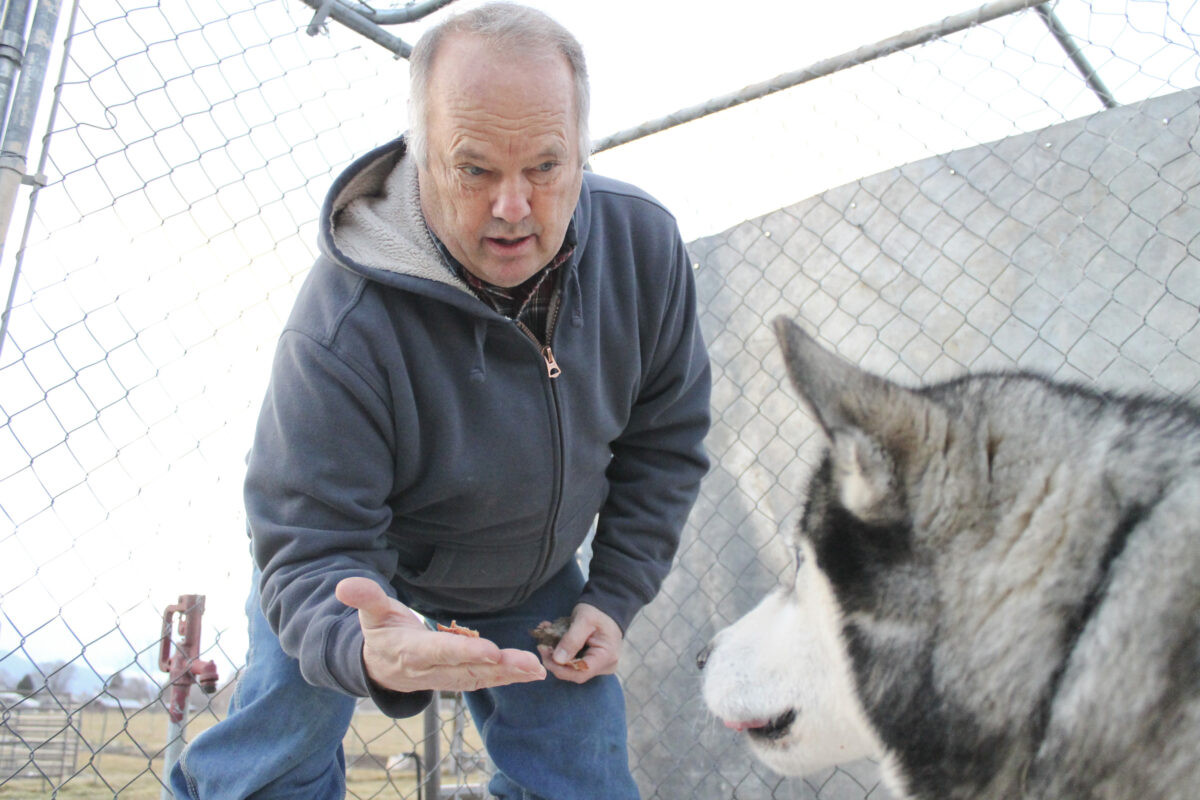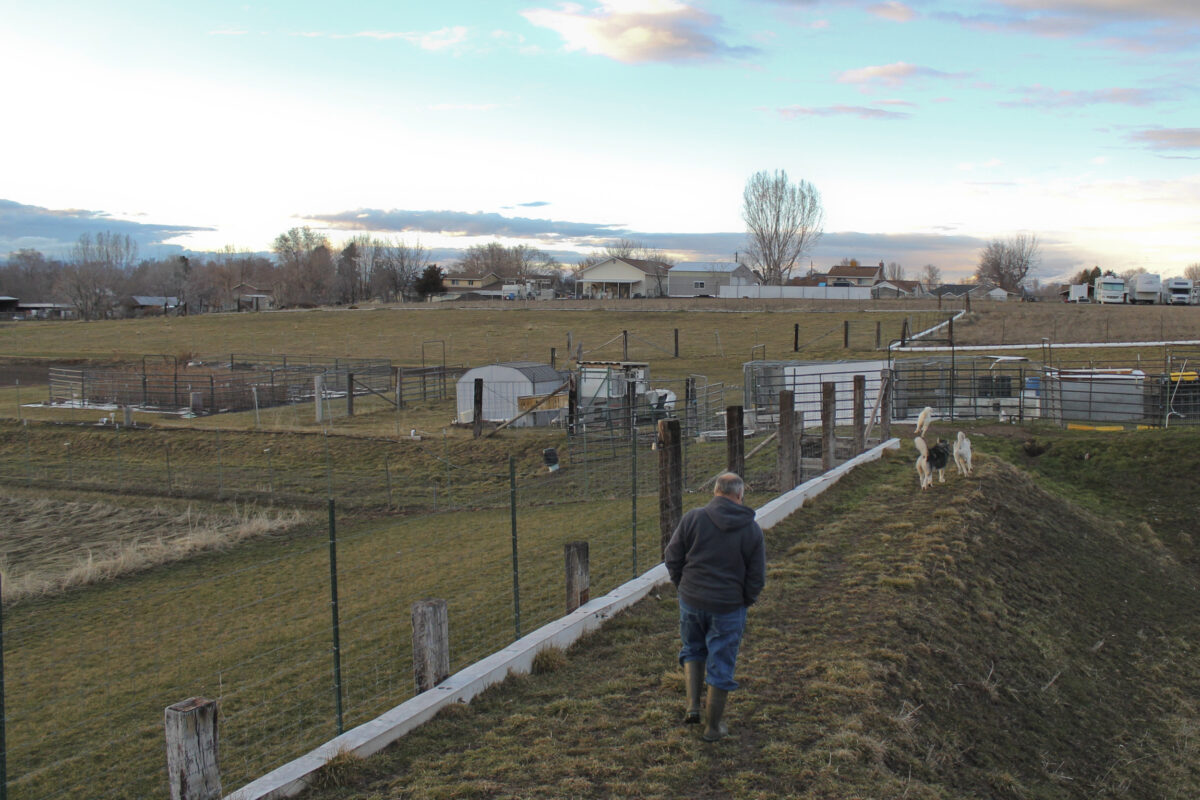What you need to know about the Puppy Barn business
Before Josh and Mary walked into the Puppy Barn on President’s Day, they did a little research.
They read online reviews on the company Facebook, visited the store in Saratoga Springs and discussed other options for buying a third dog. But in the end, they wanted a sweet, dependable purebred Siberian husky.
“You never really know what you’re getting when you get from a shelter or the Humane Society,” Mary said. “As much as adopting a dog is great, sometimes a purebred is going to be better for a family for different reasons.”
Even though Mary is an advocate of “adopt don’t shop,” she said she needed a dog with a softer temperament than her previous two shelter dogs.
The couple, who asked to be identified by their first names only, finally found the perfect match in the shape of a wiggling husky at Puppy Barn in Vineyard. The conversation that sealed the deal happened between them and the local breeder.
“We got a dog we wanted while also being able to talk to the breeder and verify some things that are important and make sure the dog is going to be happy and healthy long term,” Josh said. “You get a puppy because it’s cute, but you’re getting a dog. You’re getting a dog for life.”
The couple took the puppy home and kept her away from their other two dogs until the end of the incubation period for viruses or bacteria.
“She’s doing fantastic,” Josh said two weeks later.
In contrast, Caryn Magnesen also bought puppies from the Vineyard store a few weeks earlier in February. She saw a social media post for two Shih Tzu Bichons puppies being sold a price that decreased throughout the week.
She stopped by the store on Feb. 10 to pick up the pups on her way home to St. George. But when she arrived, Magnesen said the puppies were still sitting in the same bin she had seen them in previously but now with an adoption sign.
“They were not cleaned up and we were told the third shot was unable to be given because they didn’t have the proper needles,” Magnesen said in a Facebook message. “We were given written dates of immunizations, a brochure and a bag of dry dog food.”
She decided to buy the puppies anyway and scheduled an appointment with her veterinarian to give the puppies their last vaccinations. The appointment was set for two weeks out, but by the end of the week, both puppies were sick and throwing up.
“Our vet said the likelihood of (the puppies) getting it from anything we did is very unlikely,” Magnesen said. “He would have had to have been exposed to high levels of parvo in our care for it to happen at home.”
One puppy died from parvo while the other survived after spending four days at the veterinarian and animal hospital, she said. She said she contacted the store owner about possible compensation.
“I’m having a hard time believing Puppy Barn had no access to inventory to vaccinate for us when they had a solid 24 hours to prepare the puppies for homing,” Magnesen said. “Either way, according to the vet, the shot wouldn’t have prevented it.”
The two stories illustrate the vying public opinions about the Puppy Barn and why the store has become a “love or hate” scenario for many in Utah Valley.
What is parvo?
Parvo is a highly contagious virus that spreads from dog to dog through feces. Puppies younger than four months old are most at risk, according to the American Veterinary Medical Association.
The symptoms including loss of appetite, rapid weight loss, vomiting, lethargy, fever and diarrhea. With an incubation period of seven to 14 days, parvo so widespread there is no way to report an outbreak to authorities.
There is a 90 percent survival rate if caught early. But without proper treatment, puppies who contract the virus can die within 48 to 72 hours.
“If the mother has been vaccinated, the maternal antibody is in the puppy. Between age 4 to 6 weeks that antibody wanes,” said Dr. Carolyn McGuire, a veterinarian with Animal Medical Services in Orem. She is also the contracted veterinarian for Puppy Barn.
Puppies younger than 4 weeks can’t get parvo, she explained. When antibodies eventually go away, there is a window when puppies should start being vaccinated.
“I like to start at 6 weeks,” McGuire said. “Once they’ve got the vaccine, like children, they need two boosters about every two to four weeks. They can still get parvo if they are not protected by the boosters.”
Parvo is always around us, said Deann Shepherd, the marketing director at the Humane Society of Utah. Even the grass can be contaminated for two years or longer.
“It can cost up to $1,000 or more to start treatments,” she said. “Shelters are keen on keeping sanitized. I don’t know that pet stores have the staff on hand that knows how to do it correctly.”
Since Utah is a buyer-beware state, she cautioned new puppy owners to never take puppies to a dog park or even out in public until the animals have had all of their booster shots at approximately 12 to 14 weeks.
Dr. Barry Rammasch, a veterinarian with All About Pets in Provo, said the public needs to be better educated about parvo and the importance of preparing, purchasing and caring for pets.
“We’d see outbreaks independent of whether Puppy Barn is operating or not,” he said. “Puppy Barn is not making all dogs in town sick. Puppy Barn has had a problem. People are bringing the disease into Puppy Barn and may have held a sick puppy while shopping.”
On Sept. 17, 2017, Steve Hirchak purchased a miniature poodle, Coco, from the former American Fork location of Puppy Barn. Two days later, Coco was sick. Hirchak said Puppy Barn’s owner offered to pay $1,000 toward Coco’s medical bills.
Since the total cost was $1,200, Hirchak accepted the offer and decided to cut his losses.
“I reached out to Matt Milligan and told him what was going on. He gave me some options, return the dog or give him the dog and he would have his veterinarian look at her,” Hirchak said. “I said I’ll take care of her.”
What is Puppy Barn?
The Puppy Barn fixes the problem with traditional pet stores, said owner Matt Milligan. He wanted to create a business where puppies born locally were kept out of shelters and rescues and placed in local homes.
“Is parvo real? Yes. Do we have to deal with it in our barn? Absolutely. Do we have to take every preventative measure necessary? Yes. Does it sometimes get past our screening? Absolutely,” Milligan said. “It’s not a question of ‘if’ we are going to get coccidia, giardia, parvovirus. It’s a question of ‘when.'”
One location is in Saratoga Springs, the other in Vineyard with another possibly opening in Draper. The first American Fork store closed after disputes between Milligan and the land owner.
The puppies are kept in large metal bins with food, water and woodchips. The business has hand sanitizer stations and visitors are asked to wait two minutes between handling each puppy. Every surface in the store is cleaned at the top of the hour every hour.
For $1 per person on weekdays and $2 on Saturday, visitors can cuddle with puppies at the stores that come from a variety of breeders across Utah. There are also restrictions on who exactly can hold the puppies: only those 18 years old or older can reach into the bins, and for some breeds visitors must be 21.
“We keep dogs out of shelters. We keep dogs in their homes,” Milligan said. “We do not breed. We do not broker. We don’t ship puppies.”
Most litters don’t spend much time in the bins because they are usually sold within a week after arriving. On President’s Day, the company sold almost 60 percent of puppies housed at the two Utah County locations.
Although the Utah County business has sold more than 9,000 puppies, the business has changed since it opened five years ago.
Milligan admits that when he started in American Fork in 2014, there were no sanitizing stations, health guarantees or proper cleaning practices in place.
“I’ve had so many opportunities to open up multiple locations in the last four or five years. I have waited until now because our procedures and processes weren’t ready compared to what I am now,” he explained. “I sucked four years ago compared to what I do now.”
He continued to sell puppies but changed his business practices by listening to those who supported him and those who opposed him.
“We make a legitimate improvement every six months,” Milligan said. “The next one will probably be some type of divider in the family corral to keep puppies separate from each other.”
In 2015, he remodeled the facility with more air ventilation to increase airflow and more space. He used synthetic PVC for the floors and the walls since those materials are easier to clean and bleach.
The store also closes for an hour so the puppies can have an undisturbed dinner. The normal business hours run from 11 a.m. to 8 p.m. and is closed on Sundays. The animals are moved to a back storage area when they need to rest, and “paws off” signs are moved periodically from bin to bin.
“Every two hours, the puppies go on a 45-minute break,” Milligan said. “At any given time, there are two or three of those signs rotating around the room.”
Prices range from $250 to $1,500, or purebred registered dogs sell for a couple of thousand dollars. The average sale fluctuates around $600.
Milligan also recently started charging a small admission, which he said deters protesters and hecklers from coming to the business. The fee also reduces foot traffic and prevents the “casual buyer.”
The money collected goes toward Puppy Barn Cares, which he said has spent $60,000 giving puppies to retirement homes, veterans with PTSD, low-income families and children with autism.
The foundation also funds the Puppy Barn Cares Facility, where all the puppies are housed for one week before they are taken to the Puppy Barn stores. Milligan started using the facility on Feb. 26 to twice-vaccinate the puppies and acclimate them to the food used at the store.
“I don’t want to create a need. I want to fill a need. If I wanted to create a need, I’d have 20 stores right now,” Milligan said. “I’m not trying to bring more puppies into Utah. I’m trying to get the puppies born in Utah into homes and retained.”
Where do the puppies come from?
Some assert that Puppy Barn puppies are bought from puppy mills. According to the Utah State Veterinarian, Dr. Barry Pittman, there are few, if any real, puppy mills in Utah, especially when compared to the Midwest.
“Mills are highly regulated,” he said.
Peter Jeppson is an appraiser in Salem and owns three Siberian huskies. He has sold the puppies to the Puppy Barn every six months for four or five years.
The dogs have more than six acres to roam near his home. He also built custom kennels and insulated birthing shelters using panels from a bakery. He gives each of his grandchildren a puppy and believes most people who love their animals are taking care of them the best they can.
“For them to say you can only get a rescue dog or a rescue animal, you don’t know what the circumstances are where that animal might have a problem,” Jeppson said. “If you can buy a pup and train it good and treat it nice, your chances of having a problem are significantly less.”
Sue, who asked to be identified by her first name, is another breeder in southern Utah who frequently travels. Her two dogs, a male Maltese and female Shih Tzu Yorkie, have litters of puppies about every six to eight months.
When the puppies are 8 weeks old, Milligan or another Puppy Barn employee will usually meet her halfway from where she is living.
“It’s hard to sell your puppies in a little, tiny place,” Sue said. “He checks them and gives them a parvo test before he takes them. I’ve never had any problems with parvo, and I’ve never had one test positive. In my opinion, he tries whatever he can do to provide a healthy puppy.”
To meet the criteria to sell puppies to Puppy Barn, the parent dogs need to be owned for either hunting, work or a personal pet.
“We will meet with that breeder, we will make sure their living environment is conducive to health, we’ll make sure Mom and Dad have been well cared for,” Milligan said.
He disputes the rumor that he takes puppies from their mothers when they are 5 weeks old. The puppies’ eyes would be open at that point, he explained, but they wouldn’t be able to eat dog food.
He claims many of the accusations stem from one photo in 2015 shared to social media. A photographer took a picture of a yawning 5-week-old puppy as it was being cared for by a breeder connected to Puppy Barn.
Rumors started that the puppy was the same age as dogs at the business. In reality, Milligan said he was helping the breeder bottle feed the litter of 5-week-old puppies after the mother dog had been hit by a car.
“That puppy didn’t hit the barn floor for an additional two weeks after the photo,” he said. “When it got 6 weeks old, we vaccinated the puppy. When it was 7 weeks old, we were able to give it a home.”
If he hears about a problem with a puppy or a litter, Milligan will quarantine the dogs for up to 10 days. The business spends at least 5 percent of the company budget for post-adoptive care.
Another accusation is that the Puppy Barn sells illegal breeds. Milligan said the rumors came an incident in January 2015 when a breeder came to the Puppy Barn with timber wolf and Siberian husky mix puppies.
The Puppy Barn helped every puppy find a home within 72 hours, but police officers contacted Milligan on reports of selling illegal breeds. Although Utah state law allows puppies with wolf blood to be sold, the city of American Fork had different regulations. The American Fork Police Department decided not to fine Milligan and simply informed him of the policy.
About 60 percent of the puppies at Puppy Barn are toy breed, high-end hypoallergenic puppies, Milligan said. Nearly 20 percent are large breed dogs like Labradors and 20 percent working- class breeds like border collies and mixed puppies.
What is the controversy with Puppy Barn?
Celeste Bailey said she has had both positive and negative experiences with Puppy Barn. She runs an animal rescue in Eagle Mountain and bought a puppy when the store first opened in American Fork.
The puppy was healthy besides a behavioral problem Bailey said came from the puppy being taken from the mother too young. During the purchase, Puppy Barn did not provide her with medical information or records, Bailey said.
“You don’t know where these puppies come from and that’s my biggest personal big thing. Either adopt or buy from a reputable breeder where you can see the mom and dad on site,” she said.
Social media groups have taken up a cause against Puppy Barn and Milligan. The Daily Herald contacted more than 100 people online about their experiences with Puppy Barn.
Out of the 50 who responded, about half said they had never been inside Puppy Barn or interacted with the owner. They had heard about rumors or had friends who reportedly bought puppies that later became sick.
Rebecca Haacke said she is a service dog handler and trainer in Utah County and doesn’t want to contract parvo by stepping inside the business. Others who had been inside a Puppy Barn location cited concerns about the prices, the breeders, the appearance of the puppies and the conditions of the store.
Madalyn Kunz used to visit Puppy Barn in American Fork with her friends. A few years later, she and her husband started fostering dogs in connection with a local shelter.
When she posted a comment about her experience on a Puppy Barn Facebook post, she was startled when the comment was deleted. She found the Puppy Barn Victims Facebook page and read through messages and stories.
“I’m very disappointed in them, too,” she said. “Acting in anger and hatred is not only unacceptable, but it also makes them less credible.”
She said the Puppy Barn Victims page seemed more out of anger than supporting a good cause.
“I don’t support Puppy Barn and I also don’t support Puppy Barn Victims anymore. So for now, I’ll do my part by loving our foster dog and helping him get adopted instead of involving myself in a hate group,” Kunz said.
On Sept. 4, 2015, vandals tagged the American Fork Puppy Barn in graffiti and sprayed the message “no more dead puppies” on the windows at night. The American Fork Police Department investigated the vandalism but never found who left the graffiti.
The same kind of vandalism happened the same night at Milligan’s home, according to an American Fork police report. The incident was reported on the Puppy Barn Victims Facebook page and the page administrators strongly denounced the vandalism.
The administrators stated that Milligan has threatened to sue various people involved with the issue.
“He is a liar, he threatens his customers, he has threatened us, he is a bully,” the administrators wrote in a message. “His business puts a huge drain on our rescues and shelter systems.”
Milligan has reported a few of the incidents to the police, but there is little that can be done under the statutes of criminal mischief and harassment, according to the American Fork Police Department.
Heather Beck, at K9 Lifelines, said she is concerned at how Puppy Barns care for and treat their dogs.
“Victims are very angry,” she said. “If its business model was good, it would be different. I want to keep my community safe and dogs safe.”
What comes next?
People are still buying puppies from the Puppy Barn, even with the rumors and questions. The business has a 100 percent adoption rate since November 2014.
Orem resident Lia Joo loves to visit the puppies at the Saratoga Springs location least twice a month. She bought a husky mix in November 2018.
The puppy had a urinary problem for the first few weeks after taking him home. But Joo said the veterinarian prescribed a digestive medication and the problem went away.
“We were scared at first because we thought this is a horror story that everyone talked about,” Joo said. “But in the end, he was fine and strong.”
Vineyard Mayor Julie Fullmer admits she hasn’t been into the new Puppy Barn in Vineyard, but she has received about 100 letters from people warning about the business.
“If the information I’ve received is correct, then my fear is that all the puppies and people petting the dogs are spreading the disease,” Fullmer said, “We called the Utah County Health Department, Human Society and state veterinarian. They turned it back to us and said, ‘We don’t have the resources.'”
Salt Lake City, Sandy, Murray and Midvale all passed laws prohibiting pet stores from selling anything but rescued dogs. Provo Municipal Council will vote on an ordinance by the end of March.
Milligan said his ultimate goal is to educate buyers and opponents alike. Each employee he hires is required to memorize a training manual before starting work. He occasionally combs through the reviews on the company Facebook and removes contemptuous comments to keep the page family friendly.
“It’s hard to know as much about dogs as I do because I live and breathe it. But it can be frustrating sometimes when someone gets the wrong information,” he said.
Although he has received offers to turn the business into a franchise, he hopes the company continues as a local resource for local breeders.
“I have to do certain things better,” Milligan said. “Protect the puppies, that’s my job. Make sure they are actually the breed we say they are, that’s my job. Making sure we honor our health guarantee should the worst happen, that’s my job.”



